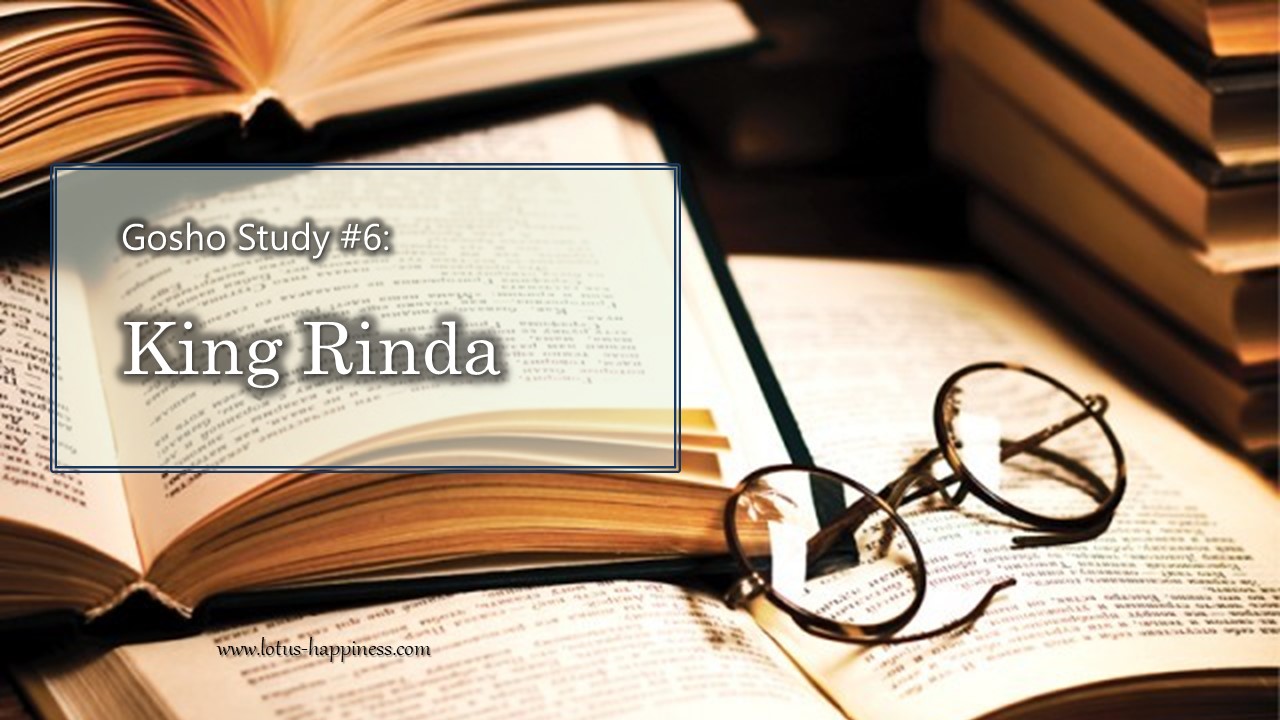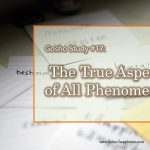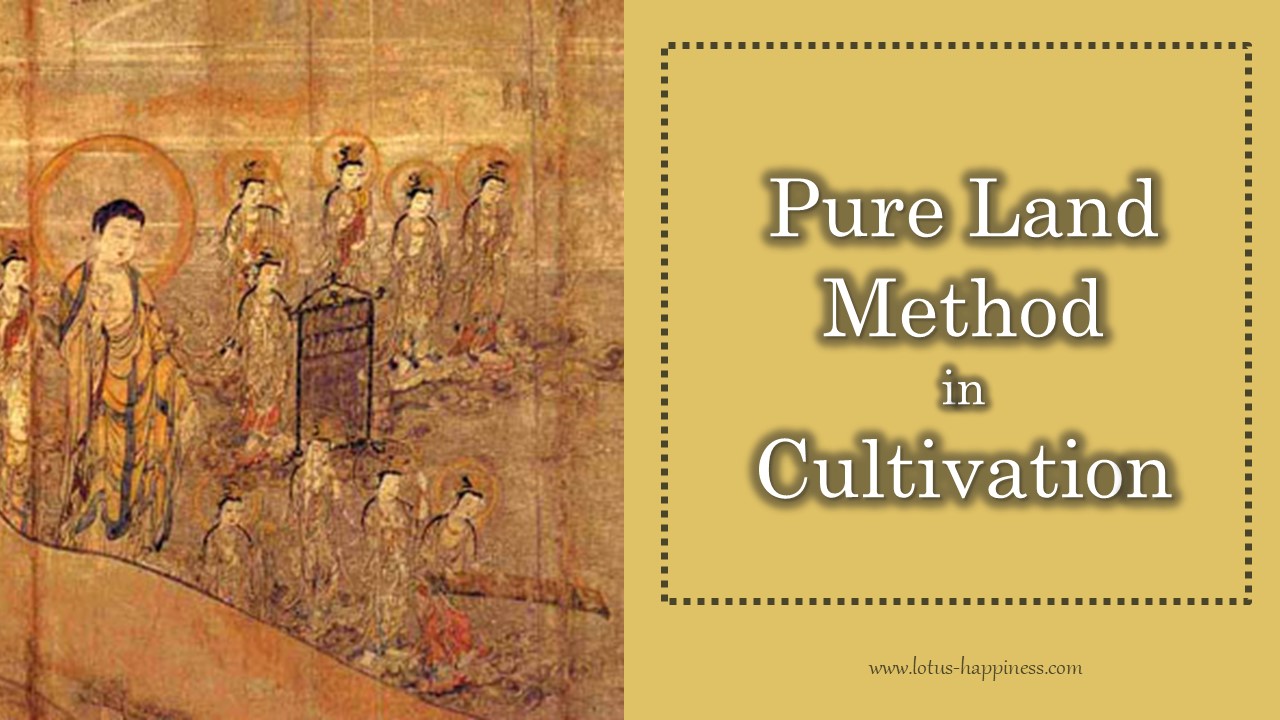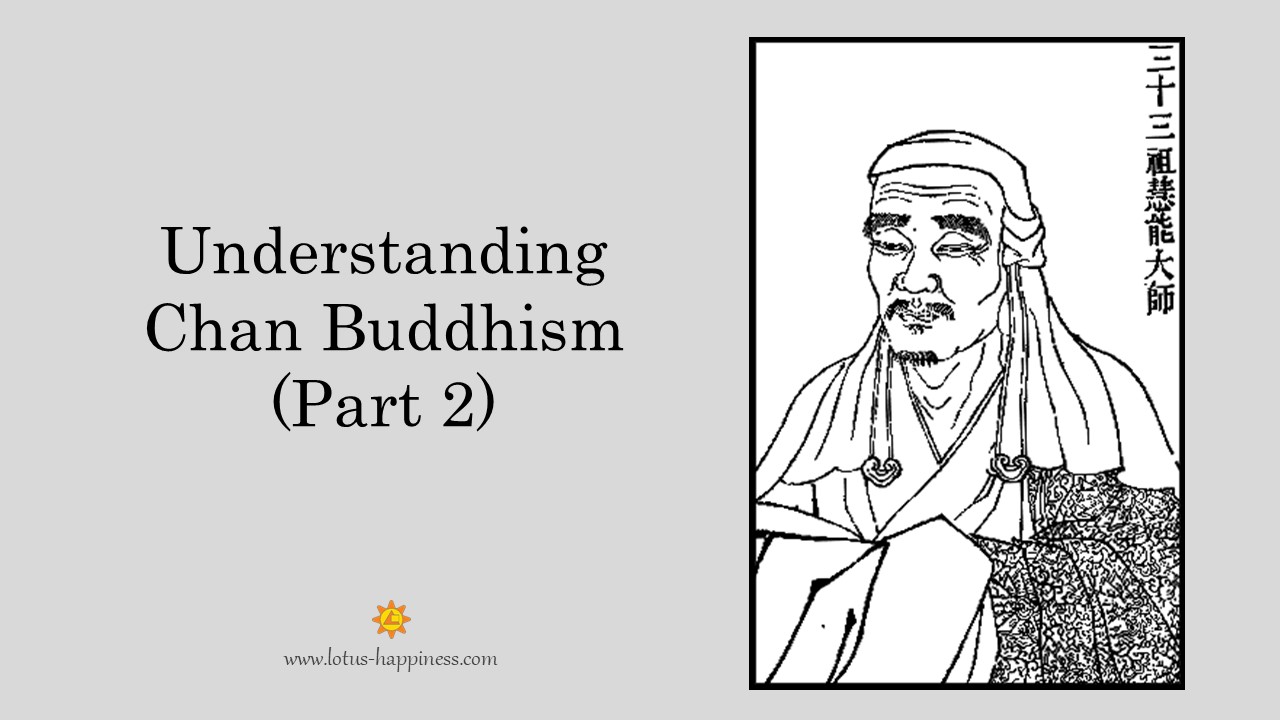Gosho Study #6: King Rinda
The neighing of the white horses is the sound of our voices chanting Nam-myoho-renge-kyo. When Brahma, Shakra, the gods of the sun and moon, the four heavenly kings, and the others hear this sound, how could they fail to take on a healthy color and shine with a brilliant light? How could they fail to guard and protect us? We should be firmly convinced of this! (The Writings of Nichiren Daishonin-1, 990)
Offering Powerful Prayers that Activate the Protective Functions of the Universe
This letter, dated August 1279, is thought to have been addressed to Soya Doso who, along with his father Soya Kyoshin, was a dedicated follower of Nichiren [in Shimosa Province (part of present-day Chiba Prefecture)]. The letter was written at a time when the country was filled with great anxiety and turmoil at the prospect of a second Mongol invasion.
This is a passage in which Nichiren Daishonin clarifies the beneficial power of the daimoku of Nam-myoho-renge-kyo. In this Gosho, Nichiren employs the story of King Rinda and the white horses and white swans to illustrate the profound significance of this daimoku in easily accessible terms.
The story goes like this – There was once a ruler named King Rinda whose life-force was invigorated when he heard white horses neighing. These white horses, however, only neighed when they saw white swans. So when all the white swans disappeared from the kingdom one day, the white horses ceased to neigh. As a result, the king and his people grew weak. Then, Bodhisattva Ashvaghosha came forth to pray and vow to the Buddhas to propagate the teachings of Buddhism in this kingdom. The white swans immediately appeared, and the white horses began to neigh joyfully. King Rinda recovered, his people were also revived, and peace and prosperity were restored to the kingdom.
Nichiren explains that the neighing of the white horses is the sound of the voices of Nichiren and his followers chanting Nam-myoho-renge-kyo. (cf WND-1, p 989) Through this, Nichiren clearly expresses the principle that the voices of practitioners of the Lotus Sutra chanting Nam-myoho-renge-kyo have the innate power to awaken the fundamental life-force of all living beings — that is, their Buddhahood, or Buddha nature.
The image of “the neighing of the white horses” has a deep significance to how we should chant daimoku. In other words, our chanting should be light, refreshing, and vibrant, like a noble steed galloping freely across the vast open plains. Nichiren also teaches in this passage that we should be firmly convinced that our vibrant voices chanting daimoku give power and strength not only to the main tutelary gods of Buddhism, Brahma and Shakra, but to all heavenly deities—the benevolent forces of the universe—activating and strengthening their protective functions. This will in turn impart fundamental vigour and dynamism to society.
Key Pointers:
- This is a passage, Nichiren clarifies the beneficial power of the daimoku of Nam-myoho-renge-kyo.
- in this Gosho, Nichiren employs the story of King Rinda and the white horses and white swans to illustrate the profound significance of this daimoku in easily accessible terms.
3 Nichiren explains, through the story, that the neighing of the white horses is the sound of the voices of Nichiren and his followers chanting Nam-myoho-renge-kyo.
- Through this, Nichiren clearly expresses the principle that the voices of practitioners of the Lotus Sutra chanting Nam-myoho-renge-kyo have the innate power to awaken the fundamental life-force of all living beings — that is, their Buddhahood, or Buddha nature.
- The image of “the neighing of the white horses” has a deep significance to how we should chant daimoku. In other words, our chanting should be light, refreshing, and vibrant, like a noble steed galloping freely across the vast open plains.
- Nichiren also teaches in this passage that we should be firmly convinced that our vibrant voices chanting daimoku give power and strength not only to the main tutelary gods of Buddhism, Brahma and Shakra, but to all heavenly deities—the benevolent forces of the universe—activating and strengthening their protective functions. This will in turn impart fundamental vigour and dynamism to society.












